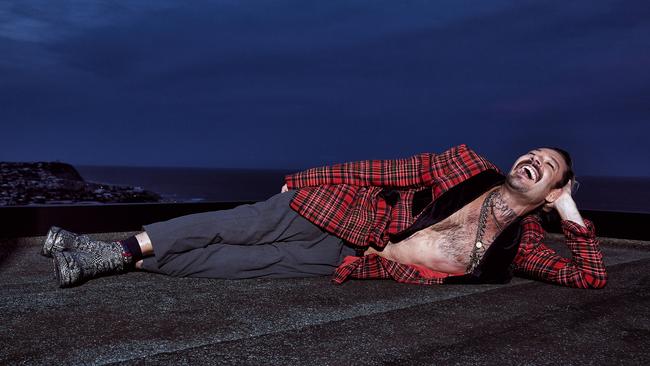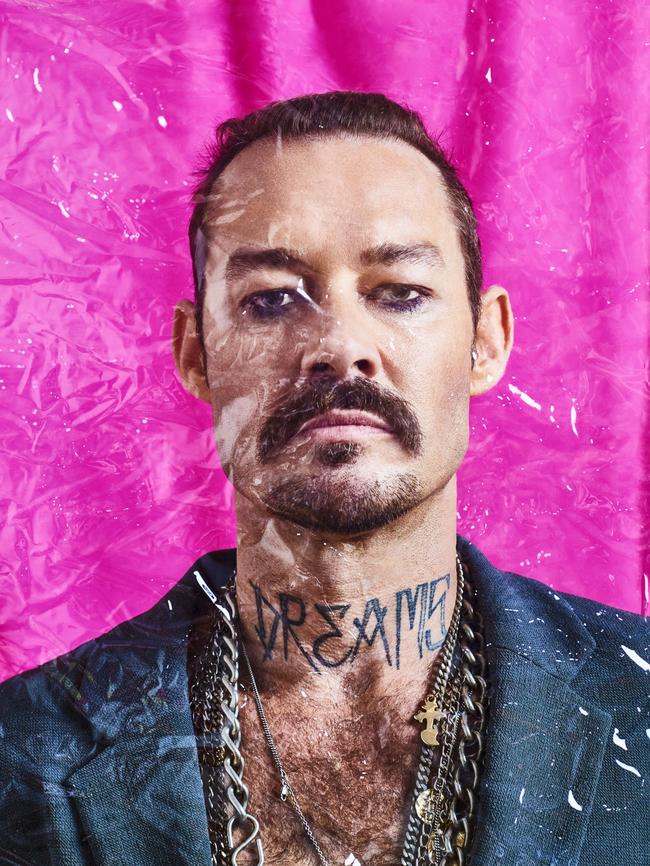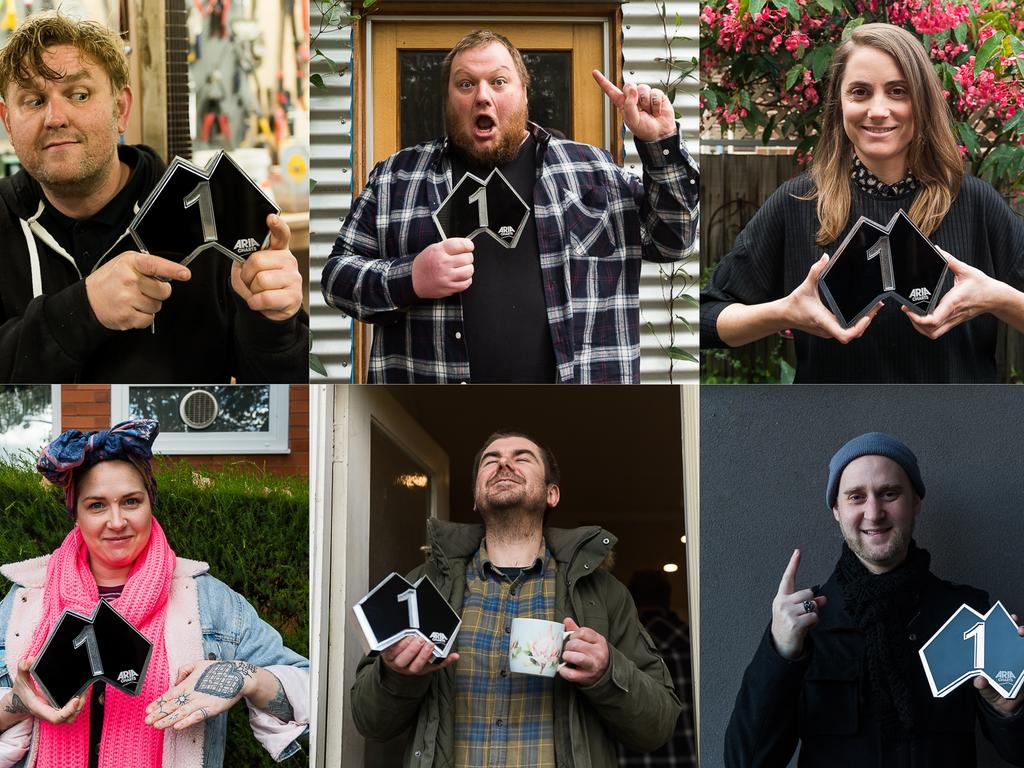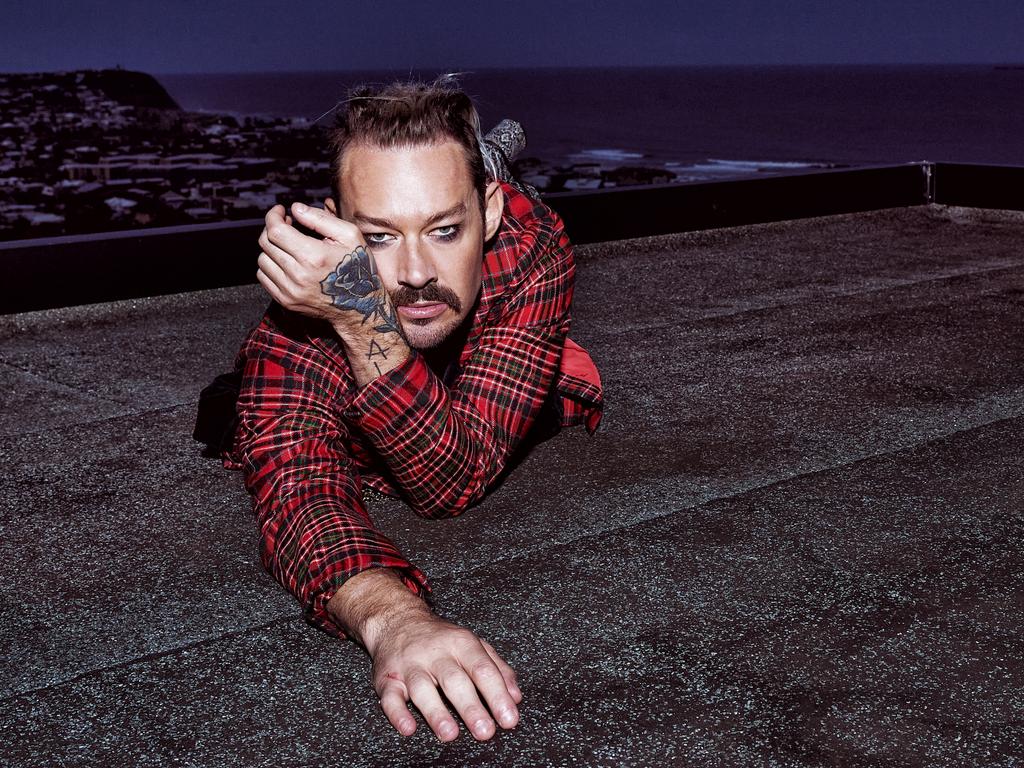Daniel Johns didn’t win an ARIA, but FutureNever still a unique success
The former Silverchair frontman lost to Baker Boy in the best solo artist category, but the enduring chart success of FutureNever has been a revelation.

Most years, the ARIA Awards reveal a clear overall winner who stands above their peers by claiming the largest number of pointy statues. Genesis Owusu, Tame Impala, Tones and I, and Amy Shark have been the outstanding winners in recent years.
At Thursday night’s ceremony in Sydney it was Baker Boy, aka hip-hop performer Danzal Baker, who picked up five awards, including album of the year.
But I’ve been thinking about one of the night’s losers, Daniel Johns. After a remarkable year for the musician, he was nominated for just one ARIA – best solo artist – and lost to Baker Boy.
There’s no shame in that, and no harm done. Artists don’t make music to win awards: the smart, reasonable and talented ones learn quickly to treat such baubles as a bonus, and they don’t throw a fit if their name isn’t called from the podium.
And Johns, 43, has been on the podium 23 times previously, both with his former band Silverchair, the enormously popular Newcastle-born rock trio, and with the Dissociatives, his collaboration with Paul Mac.
In April, Johns released his second solo album, titled FutureNever. It is a curious melange of rock, pop and several other styles, and I liked it a lot, playing it on repeat in the lead-up to meeting the man at his home to write a magazine profile.
In late April, FutureNever debuted at No.2 on the ARIA Top 50 album chart based solely on digital sales and streams; three weeks after its release, it rose to No.1 on the back of limited-edition cassette sales.

His reaching the top spot was not surprising given Johns’s enduring popularity, but it was not inevitable, given the way the charts tend to be dominated by international performers who log huge streaming numbers well in excess of what most domestic acts can muster.
When Australian acts do appear on the album chart, it is usually because they debut with strong pre-sales, or sales during the first week of release. If you’ve seen your favourite artist on social media asking you to pre-save their new work to your streaming service – or to order a CD, vinyl record or merchandise bundle in advance of release day – this is why: ARIA counts all those sales from the first day, and every record label has its heart set on boosting the first-week chart ranking.
Released by BMG, Johns’s FutureNever has had a most unusual ARIA chart showing across the past seven months, and despite his loss at the ARIAs on Thursday night, it’s worth highlighting how it has so powerfully cut against the norm.
The album’s ongoing chart success is a testament to BMG’s creativity and dedication to a release strategy that, depending on your view, amounts to either clever tactics in a market dominated by major pop stars, or an outright gaming of the system.
Throughout the year, BMG has continued to issue cassette versions of the album, as well as a series of limited-edition merchandise items that come bundled with a digital download of FutureNever. With the latter, the album isn’t optional: if fans want the merch, they’re buying the album too, even if they already own a copy. Every album bundle counts as a unit of sale, which adds to the weekly album chart tally.
How many units are we talking about? ARIA keeps actual sales numbers close to its chest. But during the early months of Covid lockdowns in 2020 – when most record stores were closed – Melbourne rock group The Smith Street Band reached No.1 with overall sales of just 1752 units, mostly vinyl pre-orders.
As I reported in a Review cover story, that total number was unusually low, but in an average week of listening – absent any major pop or hip-hop releases – somewhere near that number will likely land an Australian album in the top 10, if not the top five.
With the months-long promotion of FutureNever and merchandise, the album spent six weeks inside the top 10 of the ARIA album chart, and 11 weeks inside the top 20. In mid-October, the album did the near impossible: it reclaimed the No.1 spot after 22 weeks, ahead of The Weeknd and Harry Styles, following the vinyl release (delayed due to global supply chain issues).
Still, ARIA is yet to certify FutureNever a gold album, meaning its total sales have not reached 35,000.
To the average music fan, this may be no more than a mildly interesting story. To anyone who works in the Australian record industry, watching the album’s enduring chart success has been a revelation.
Johns is an outlier because he never intended to tour FutureNever or perform the songs live. Instead, some smart people at his record label thought about how to maintain interest in the album beyond the usual week-one peak.
Their evidently successful strategy required an existing passionate fanbase and a hefty series of unique and desirable merchandise offerings.
Perhaps most crucially, it demanded discipline to stay the course and to continue promoting the same set of songs at a time when listeners’ attention spans are skewing shorter.
With FutureNever, if BMG hadn’t executed its campaign to perfection, Johns’s second album would likely have had the usual arc for a major Australian release: a decent showing of streams and sales in the first week, followed by a sharp drop off the ARIA chart cliff, probably forevermore.
But that’s not what happened and, beyond the strength of the songs, it’s why I’m thinking about Johns after ARIA voters deemed him a loser in the best solo artist category. If there were an award for best album campaign, he’d be the winner by a long, wide margin.




To join the conversation, please log in. Don't have an account? Register
Join the conversation, you are commenting as Logout